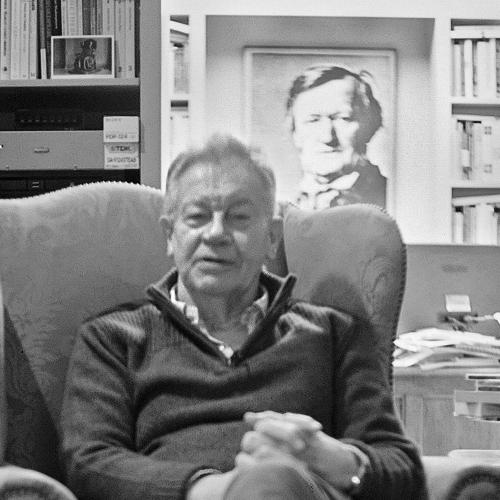COMPOSERS: Puccini,R Strauss,Verdi
LABELS: Royal Opera House Heritage Series
ALBUM TITLE: Puccini , R Strauss , Verdi
WORKS: Puccini: Tosca; R Strauss: Elektra; Verdi: Don Carlo
PERFORMER: Tosca: Zinka Milanov, Franco Corelli, Gian Giacomo Guelfi; Covent Garden Opera Chorus & Orchestra/Alexander Gibson; Elektra: Gerda Lammers, Hedwig Müller-Bütow, Georgine von Milinkovic; Covent Garden Opera Chorus & Orchestra/Rudolf Kempe; Don Carlo: Jon V
CATALOGUE NO: ROHS 005; ROHS 004; ROHS 003
The second release of opera performances from the Royal Opera’s archives contains one that is indispensable and two that are interesting and sometimes moving. The indispensable set, no question about it, is Verdi’s Don Carlo, from May 1958. This production was one which had a decisive effect on the work’s reputation, and led directly to its being regarded as one of Verdi’s finest operas, if not the finest of all (which I think it is). Covent Garden assembled a cast which is more impressive than any to be found on a commercial recording. The young Jon Vickers, who never recorded the opera in the studio, sings with a fanatical, visionary ardour which is exactly right for the title role; and his voice is in pristine condition. Carlo’s father, the implacable but tormented Philip II, is taken by Boris Christoff, a classic assumption which balances public sternness with private agony. Carlo’s beloved, who becomes Philip’s wife for diplomatic reasons, is the wonderful Dutch singer Gré Brouwenstijn, a major and underrecorded artist. The noblest character of all, Carlo’s friend Rodrigo, is Tito Gobbi at the peak of his career. And the Princess Eboli, one of Verdi’s most powerful contralto creations, is the great veteran Fedora Babieri. All the smaller roles are strongly cast, and Giulini’s conducting, both grand and lyrical, is ideal. This version, produced before Andrew Porter discovered an extra hour of the opera in Paris, is short by today’s standards, but coherent and relatively compact. The sound is not distinguished, but doesn’t impede one’s delight in what is truly a legendary performance.
A couple of weeks later there was an almost equally sensational account of Richard Strauss’s Elektra, the sensation occasioned almost entirely by the rendering of the title role by Gerda Lammers. She was, as Lord Harewood explains in an interview on disc two, a late replacement, and no one had heard of her. Nor, it’s almost true to say, did anyone hear of her again. This was her role, and she seems to have been only routine in other parts. With Rudolf Kempe’s galvanising conducting, which both sorts out the thickets of Strauss’s orchestration and hammers home the many climaxes with enormous impact, this is a remarkable reading, even if it’s not quite what memory had retained. The surrounding cast is pretty strong, with an effective Klytamnestra from Georgine von Milinkovic, but the sound is variable, sometimes rough.
The previous year had seen the debut, as Cavaradossi, of the stunning tenor Franco Corelli in Tosca. Few voices are as miraculous as his, but he uses it to almost comically vulgar effect. The heroine is Zinka Milanov, near the end of her career and having to harbour her resources. Exciting but not a remarkable account. Michael Tanner
Puccini, R Strauss, Verdi
The second release of opera performances from the Royal Opera’s archives contains one that is indispensable and two that are interesting and sometimes moving. The indispensable set, no question about it, is Verdi’s Don Carlo, from May 1958. This production was one which had a decisive effect on the work’s reputation, and led directly to its being regarded as one of Verdi’s finest operas, if not the finest of all (which I think it is). Covent Garden assembled a cast which is more impressive than any to be found on a commercial recording.
Published: January 20, 2012 at 4:03 pm
